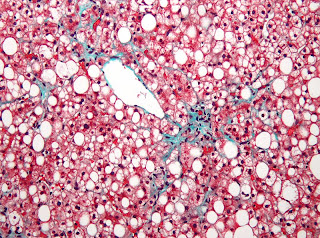The Oiling of the Liver: The Good & Bad Short- & Long-Term Effects of Tocotrienol + Carotenoid Laden Red Palm Olein, Regular Palm-, Corn- and Refined Coconut Oil

I would not expect "red palm olein wonders", but more RPO and less corn oil in the American diet may at least buffer the liver disease burden in the US (the figure is based on data provided by the American Liver Foundation) On Turesday, November 19, 2013, you've learned from a study by Subermaniam et al. about the "anti-rust" effects of coconut oil (if you missed that, you can catch up here ), today, we are going back to Malaysia and the Universiti Kebangsaan Malaysia and the results of another team of researchers to learn about the effects the various oils have on the "oiling of the liver" (Dauqan. 2013). I guess most of you will remember my previous comments about the critical role of the liver (and its health or disease) in the development of the metabolic syndrome ( read it up ). It is thus by no means irrelevant, whether the chronic ingestion of a certain type of oil will result in MDA levels of 92µmol/g or 27.3µmol/g. Boring!? No, rathe...





